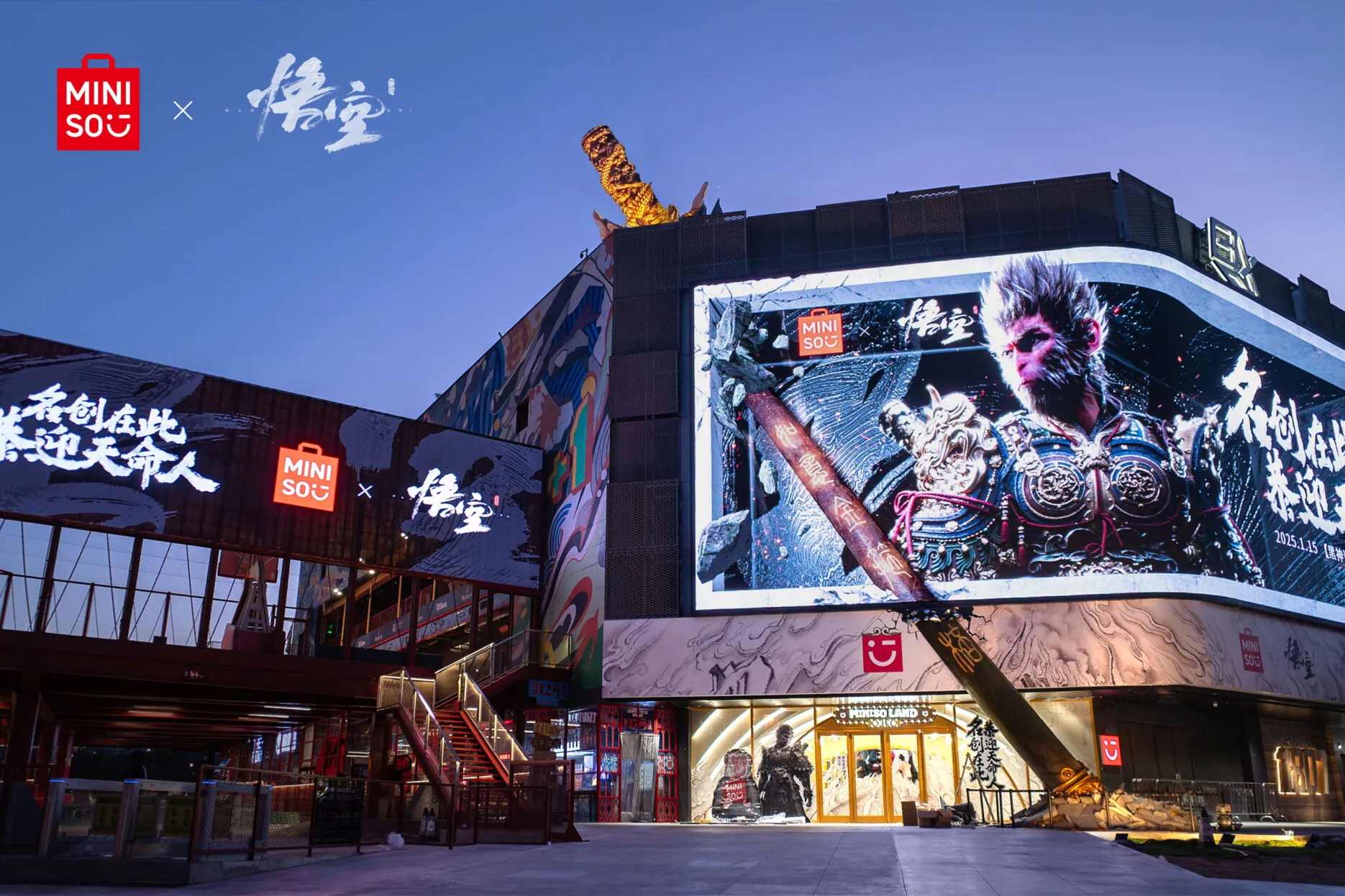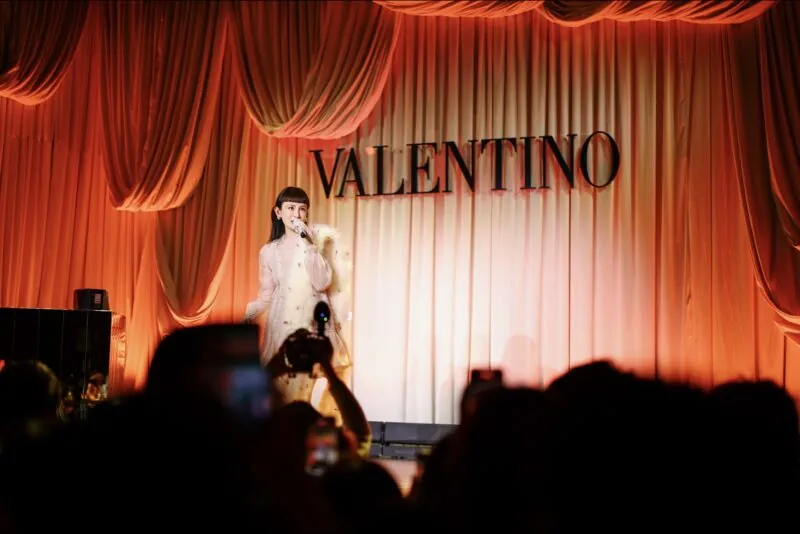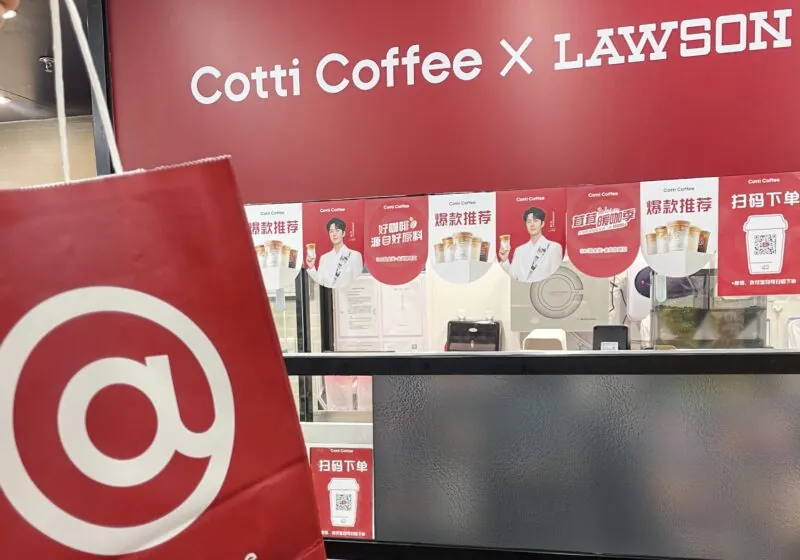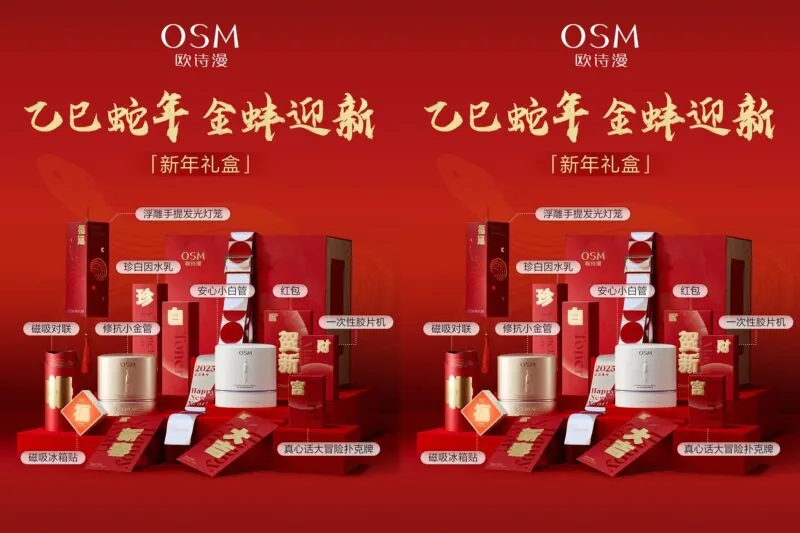In 2023, brand collaborations were all the rage. With the accessible and everyday nature of tea and coffee chains, co-branding campaigns such as the HeyTea x Fendi and Luckin Coffee x Kweichow Moutai were huge sales successes for the respective tea and coffee chains and served as successful marketing for the partner brands. IP collaborations were also getting more attention as the year progressed.
2 years later, as brands more or less launch collaborations regularly, IP collaborations in tea and coffee, as well as other sectors such as retail, FMCG and consumer electronics, are also becoming more prevalent. With 115 IP collabs in the food and beverage sector in Q1 2025 alone, collaborations have outgrown their purpose as marketing campaigns and have become standalone business models.
Goods for you
Goods, or “guzi” (谷子, transliteration of “goods”, meaning merch), remains wildly popular among young people. With the now IP-centric toymaker POP MART, trends of “pain” bags (or ita-bags, bags that are decorated with ACGN merch) and Jelly Cat lookalikes from everyone who is anyone, it is little wonder brands try to leverage the craze that offers much “emotional value” to young people.
It is little wonder brands try to leverage the craze that offers much “emotional value” to young people
People used to joke that luxury brand collaborations with tea and coffee chains, like the Fendi x HeyTea or Louis Vuitton x Manner Coffee, were the only way to get legit items with the brand’s logos. The same applies to IP collaborations, where the desirability of the merch outweighs the branding effect that comes with the campaigns.
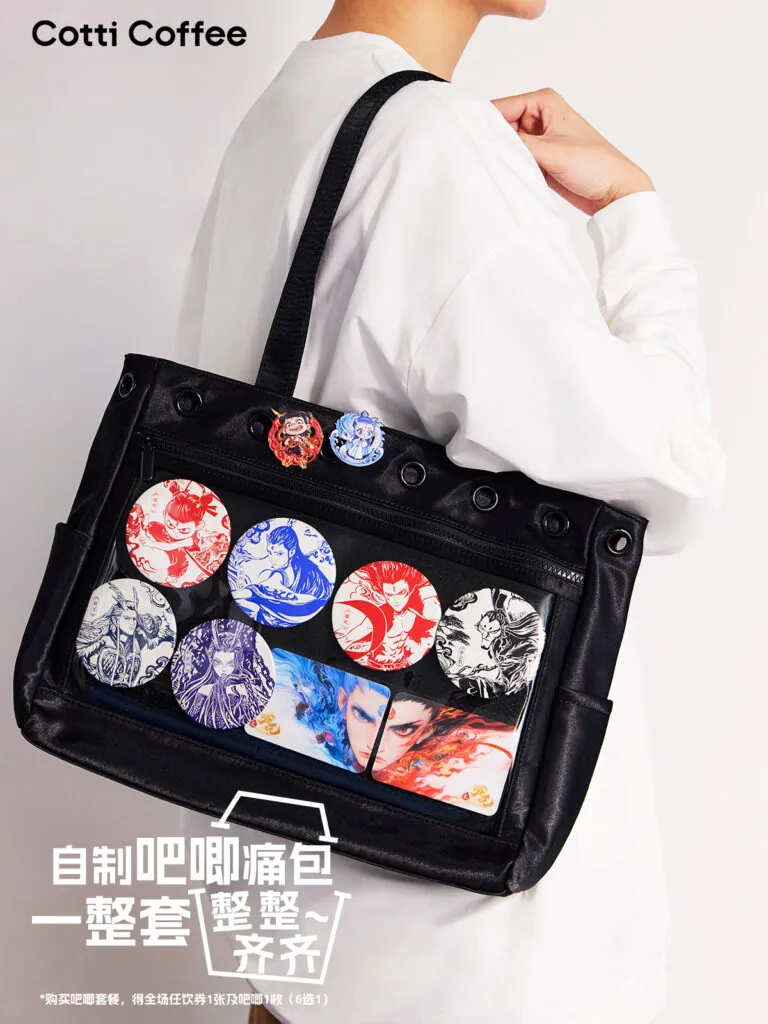
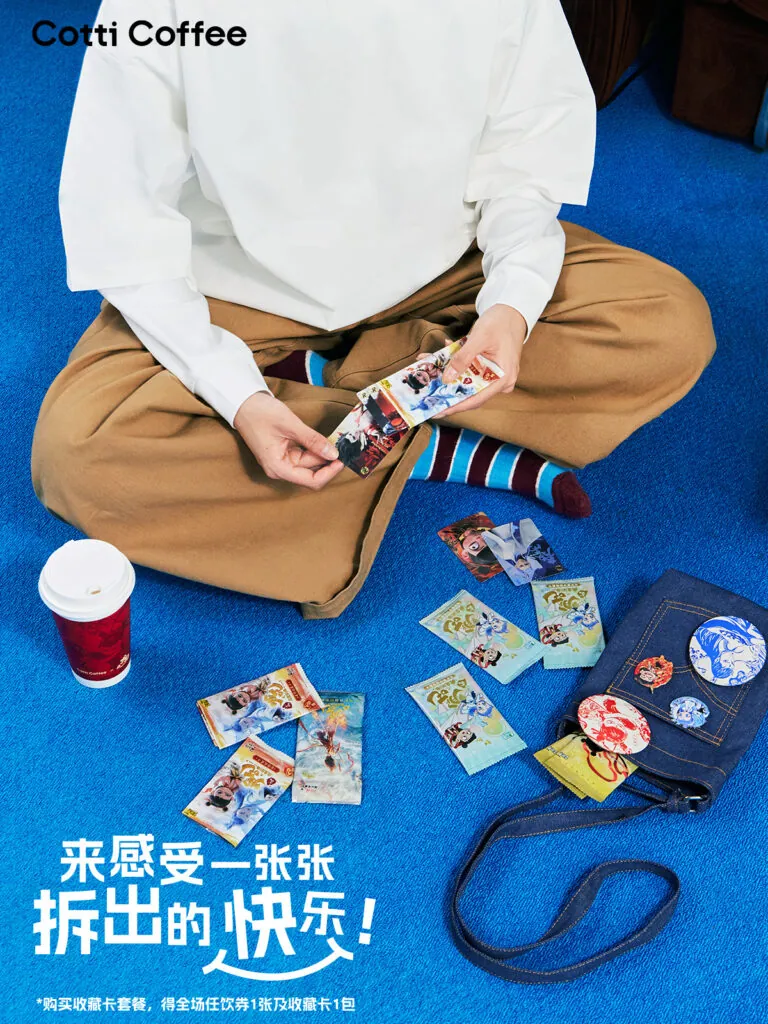
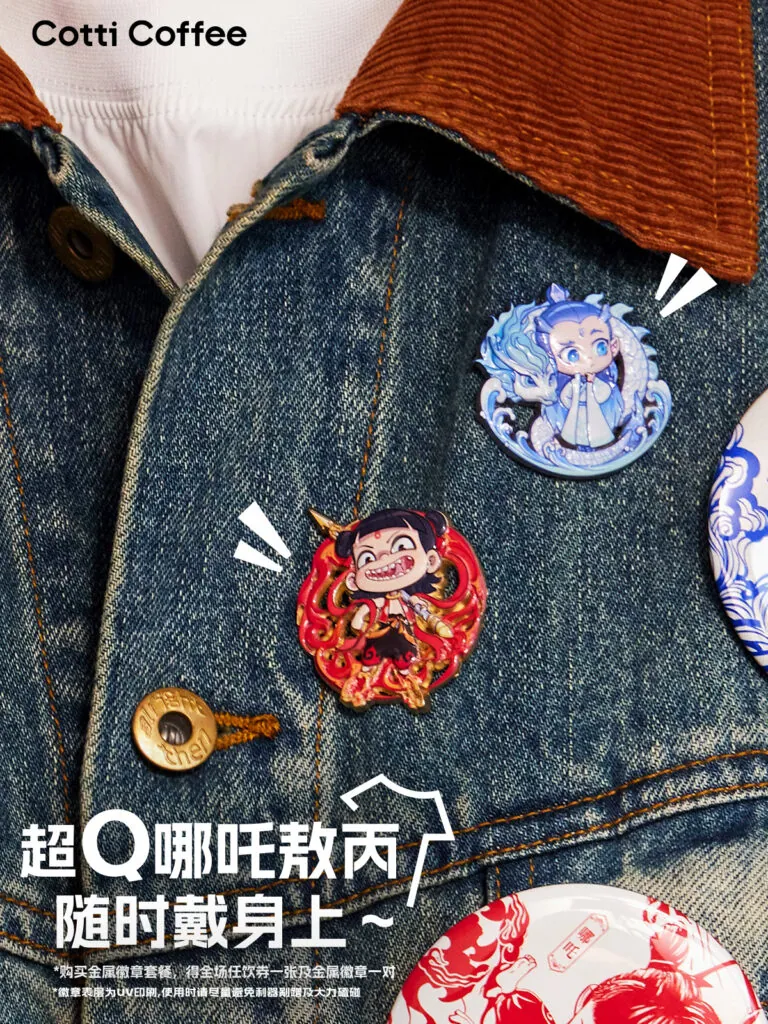
Earlier this year, the animated film Ne Zha 2 took China by storm and became the highest-grossing film from China ever. We reported that serial collaborator POP MART released its figurine blind box set, and Cotti quickly launched its own collection of goods. Many agreed when one commentator said that, finally, Ne Zha 2 merch isn’t a blind box. Indeed, for the majority, tea and coffee collaborations are the most accessible means to acquire merch from their desired IP.
From 2D to live-action, and back?
The ACGN (Anime, Comic book, Games and light Novel) fandom is usually referred to as “erciyuan” (二次元, lit. 2D). However, with the prevalence of live-action adaptations of comic books and web fiction, these live-action works and celebrities are also receiving a similar following. This trend is now reflected in the IPs in collaborations. Luckin Coffee’s Fair Island latte campaign features merch of ambassador Jackson Yee’s collectible cards.
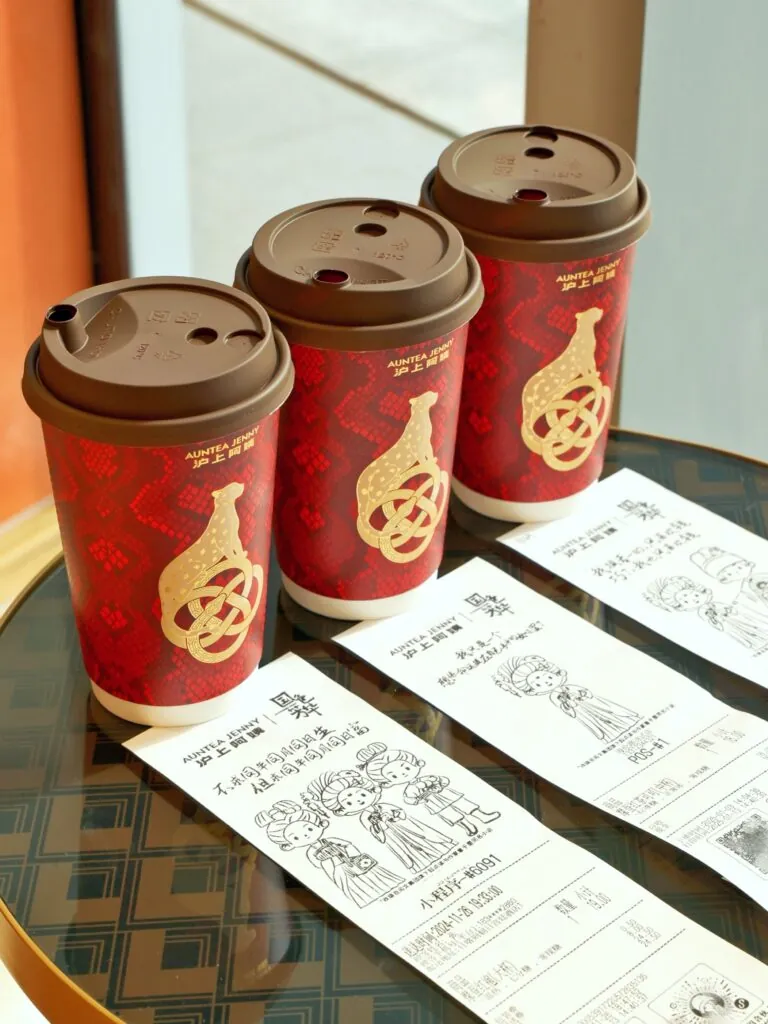
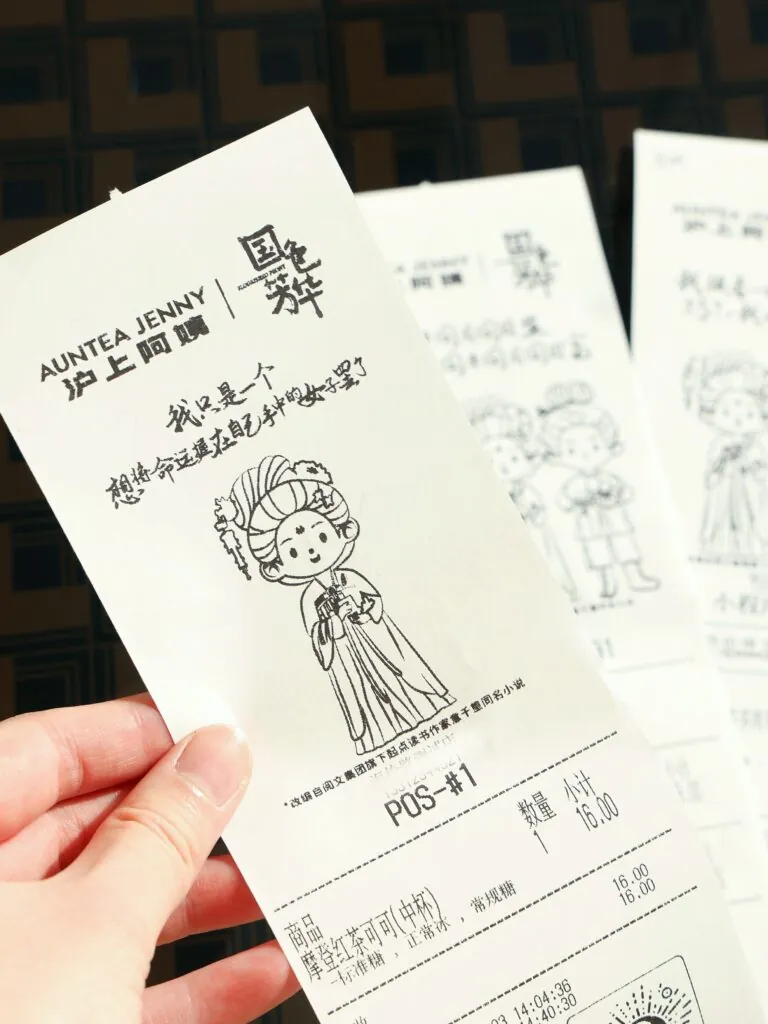
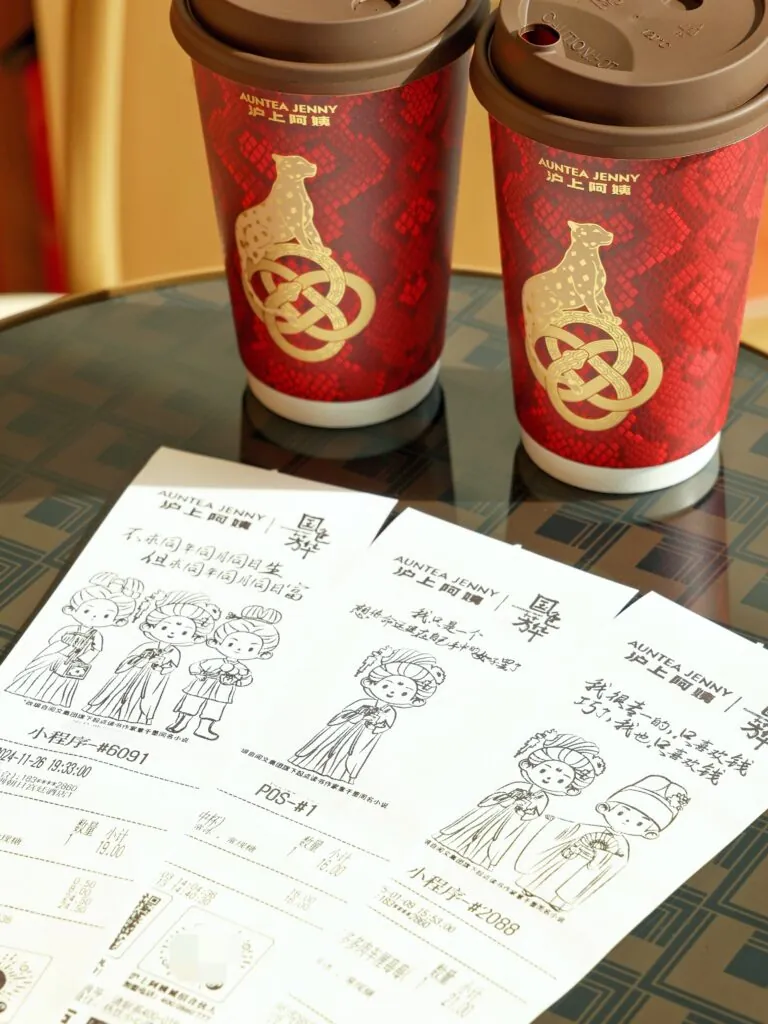
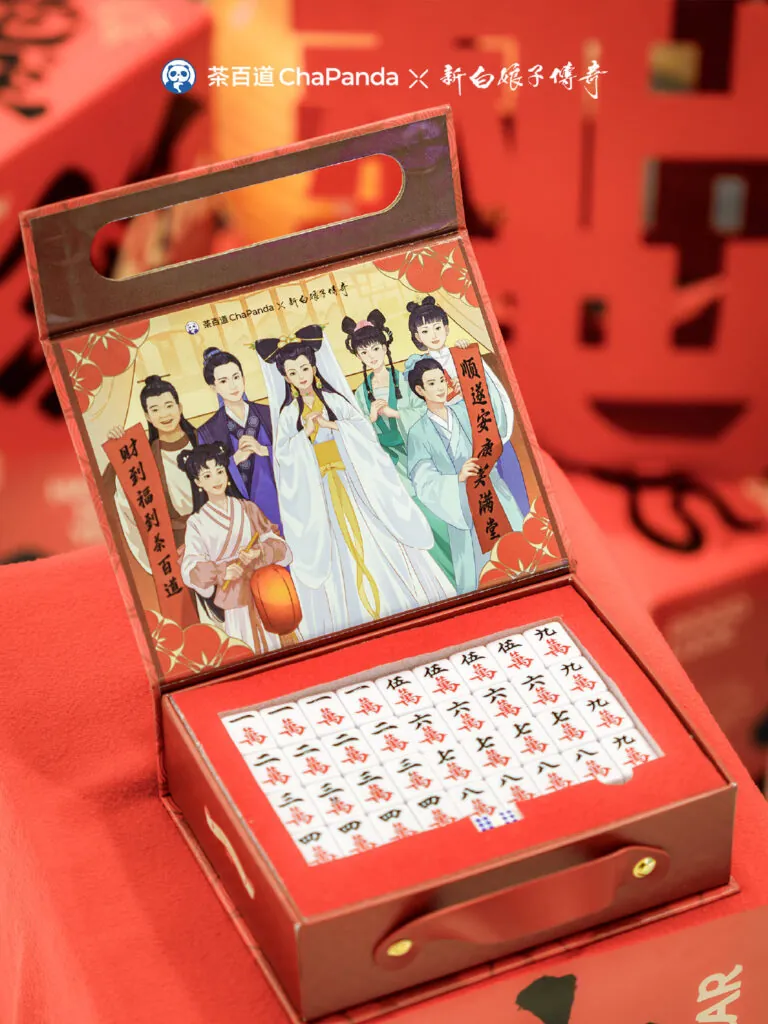
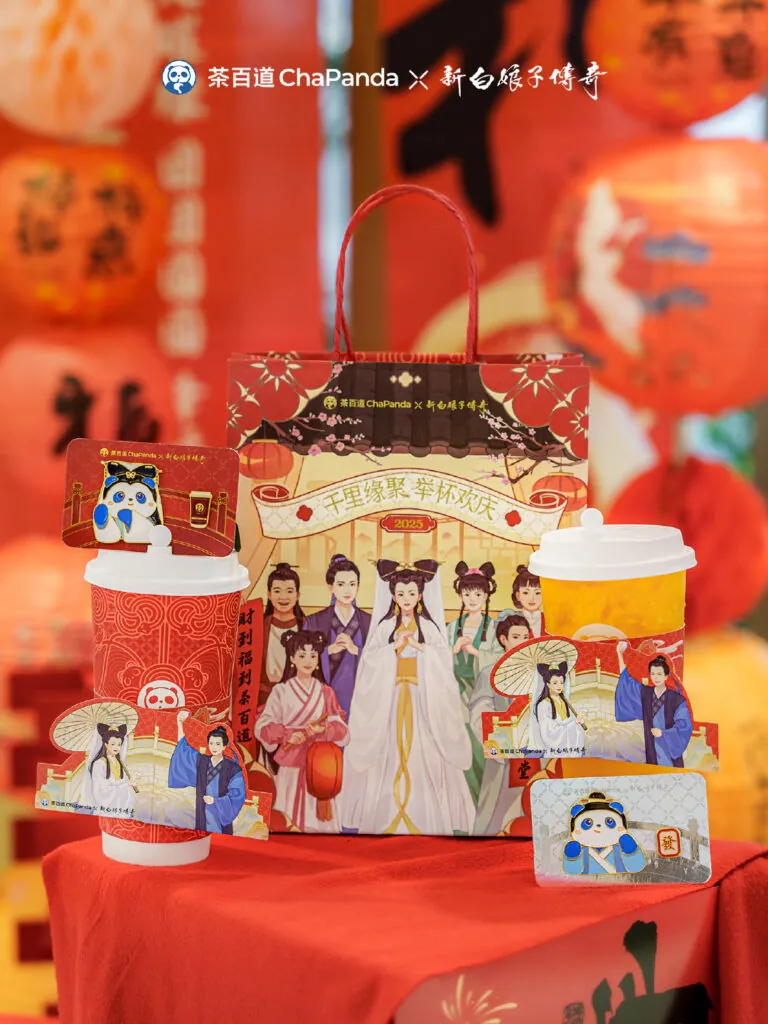
Last year, we saw live-action TV collabs with cases such as the Blossoms Shanghai and Joy of Life 2 co-brandings. But in 2025, a new trend has emerged and is being directed back towards the two-dimensional origins of goods. The team-ups between tea chain Auntea Jenny (沪上阿姨) and hit period drama Flourished Peony (国色芳华) and ChaPanda’s team-up with the classic TV series New Legend of Madame White Snake (1992) for the Year of the Snake show characters drawn in a cartoon style, blurring the line between live-action and animation.
Emotional value of physical items
For many who are not originally part of “erciyuan” or any fandoms, buying merchandise might seem a novel idea. But currently, merch in each collaboration has outshone the key items, such as the co-branded coffee or tea drink. For the collectors of popular IP goods, the drinks are the add-ons. And for celebrities and live-action TV series that are not conventional makers of merch, the collab goods are likely the only official channel of their branded merch for fans. The same applies to popular memes like the Malao monkey or stickers such as Line Puppy/Maltese.
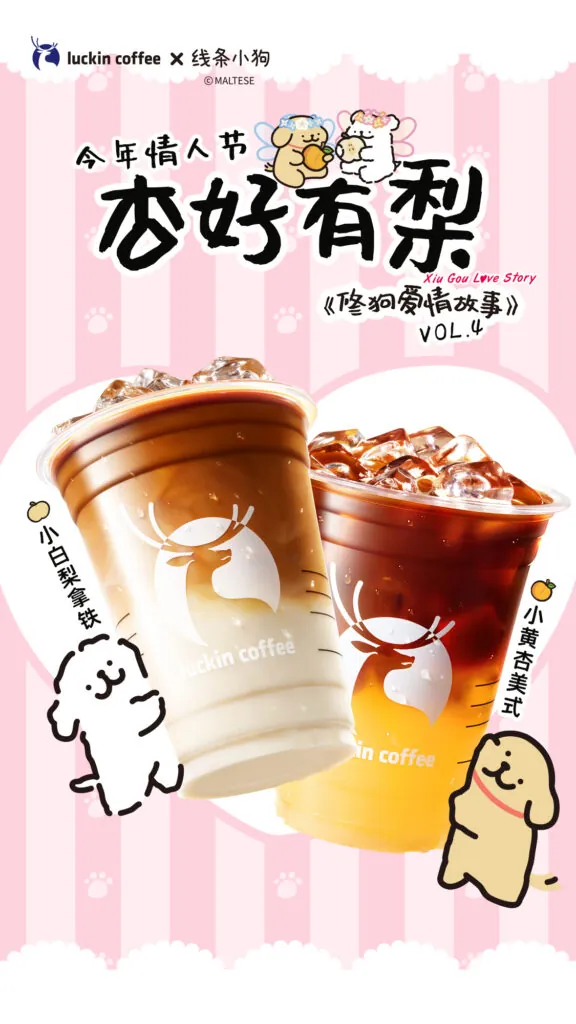
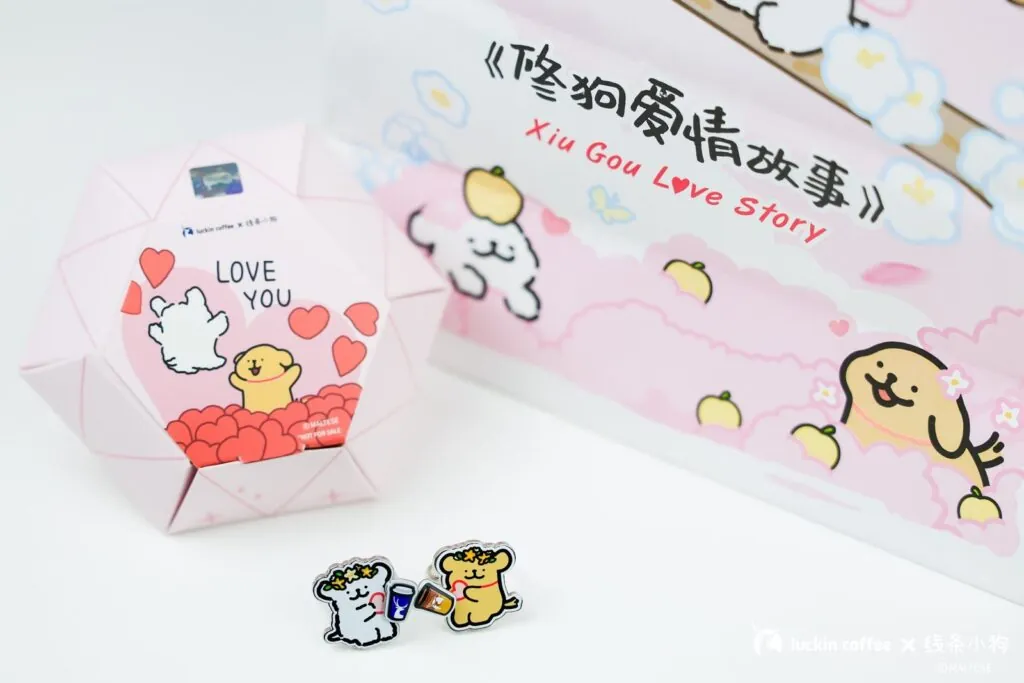
These collaborations are different from the usual licensing in retail as they are usually campaign-oriented. However, with these food and beverage chains regularly releasing merch (usually toy)-centric collaborations, it shows some similarity to how one would expect frequent McDonald’s Happy Meal releases. The only difference is, other than maybe Snow King of Mixue and the Luckin deer person, few chains have created or emphasised their own IPs.
POP MART, in this regard, really has it both ways. Not only is it regularly collaborating with iconic IPs from Mickey Mouse and friends to Teletubbies, but its own IPs, such as MOLLY and LABUBU, are becoming some of the most desirable “it” IPs in the fashion world.
Brands still need to view their now regular co-brandings as part of their branding
With the IP merchandise itself having become a sustainable income for brands, the collaborations themselves are becoming part of the business model. The collaborations are less about creating a viral buzz, but the rules of co-branding still apply. Brands still need to view their now regular co-brandings as part of their branding and monitor how the partners affect their profile.
Need to boost your China strategy? Dao Pro delivers bespoke insights on marketing, innovation, and digital trends, direct from Chinese sources. Find out more from our Dao Strategy Team here.




